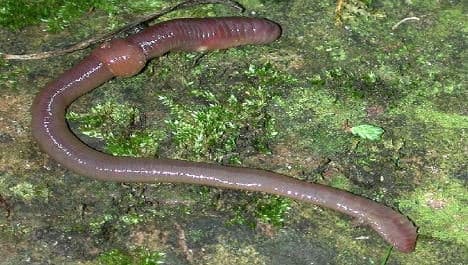French worms colonise Irish farm

A community of French earthworms has been unearthed trying to eat their way through the soil on an Irish farm, some 1,000 kilometres north of their natural habitat.
No clash seems to be looming as the French worms prefer to eat a different part of the soil as their Irish cousins, according to a report Wednesday in the Royal Society Journal Biology Letters. But their picky palate may hold another danger -- possibly unleashing Earth-warming carbon dioxide left hitherto undisturbed by the native worms. Scientists studying earthworms on a farm in Dublin last year, discovered "abundant populations" of a species endemic to France's Aquitaine region more than 1,000 kilometres (620 miles) to the south. Some also live naturally in northern Spain, Sardinia and parts of northern Africa. These are the first earthworms from southern Europe ever reported to have settled in previously glaciated areas to the north. "The surprising aspects are that we found worms doing so well far away from their native range and that they have become established at all here in spite of the different climate and the fact that we already have lots of earthworm species," study co-author Olaf Schmidt of University College Dublin told AFP. "It is tempting to speculate that such a southern species can only survive farther north since the climate is changing," he said, stressing further research was needed to confirm this. It was not known exactly how the worms travelled to Ireland -- they were probably hidden in the roots a batch of plants delivered across the channel. On their own, earthworms can spread by about 10 metres a year, said Schmidt, and this colony was believed to have been on the farm for several years. The French worms were found in six different areas of the farm, several hundred meters apart, feeding on different parts of the soil than the local residents. "If the newcomers expand their range and population sizes, they could assimilate and hence liberate carbon sources in soils that would stay locked up ... when only native species are present," Schmidt said. The worms ingest the carbon as organic matter, and then eject it as Earth-warming CO2. "However, it could also be that this new species makes a positive contribution to soil structure maintenance, nutrient cycling and so on," said Schmidt. "We need more research to find out."
Comments
See Also
No clash seems to be looming as the French worms prefer to eat a different part of the soil as their Irish cousins, according to a report Wednesday in the Royal Society Journal Biology Letters.
But their picky palate may hold another danger -- possibly unleashing Earth-warming carbon dioxide left hitherto undisturbed by the native worms.
Scientists studying earthworms on a farm in Dublin last year, discovered "abundant populations" of a species endemic to France's Aquitaine region more than 1,000 kilometres (620 miles) to the south.
Some also live naturally in northern Spain, Sardinia and parts of northern Africa.
These are the first earthworms from southern Europe ever reported to have settled in previously glaciated areas to the north.
"The surprising aspects are that we found worms doing so well far away from their native range and that they have become established at all here in spite of the different climate and the fact that we already have lots of earthworm species," study co-author Olaf Schmidt of University College Dublin told AFP.
"It is tempting to speculate that such a southern species can only survive farther north since the climate is changing," he said, stressing further research was needed to confirm this.
It was not known exactly how the worms travelled to Ireland -- they were probably hidden in the roots a batch of plants delivered across the channel.
On their own, earthworms can spread by about 10 metres a year, said Schmidt, and this colony was believed to have been on the farm for several years.
The French worms were found in six different areas of the farm, several hundred meters apart, feeding on different parts of the soil than the local residents.
"If the newcomers expand their range and population sizes, they could assimilate and hence liberate carbon sources in soils that would stay locked up ... when only native species are present," Schmidt said.
The worms ingest the carbon as organic matter, and then eject it as Earth-warming CO2.
"However, it could also be that this new species makes a positive contribution to soil structure maintenance, nutrient cycling and so on," said Schmidt. "We need more research to find out."
Join the conversation in our comments section below. Share your own views and experience and if you have a question or suggestion for our journalists then email us at [email protected].
Please keep comments civil, constructive and on topic – and make sure to read our terms of use before getting involved.
Please log in here to leave a comment.